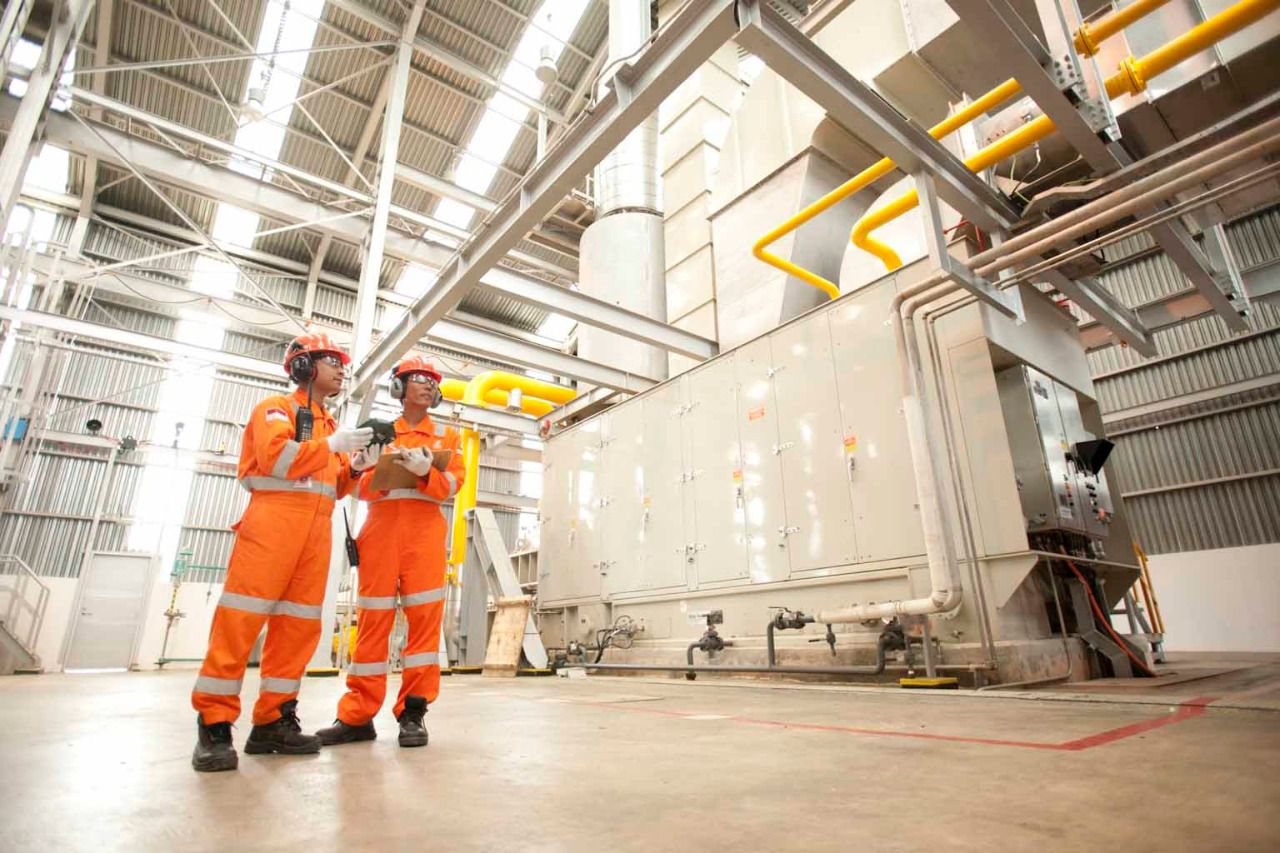
Pertamina Gas Subholding Optimizes Potential Utilization of Natural Gas in the Energy Transition Period
Jakarta, December 15, 2021 – Pertamina's Gas Subholding, PT PGN Tbk, continues to encourage all business lines to maximize their role in Indonesia's energy transition. During this period, there were several potential synergies for optimization. It includes the industrial sector, in which PGN prepared to support industrial estates for Eco-Industrial Parks/Estates with environmental, social, and corporate governance aspects. Natural gas has a calorific value of 12,500 kcal/kg and helps reduce emissions. It is expected to boost the region's competitiveness.
"The Eco-Industrial concept does not only pursue profit but also pays attention to the environment, society, and government. It can add value to the company in the long term," said Director of Sales and Operations of PGN, Faris Aziz (15/12/21).
Faris explained that with a larger scale and capacity, Subholding Gas is committed to completing the refinery gasification program to increase the utilization of natural gas in the refinery sector, with a total natural gas potential that will be utilized around 351 BBTUD.
"In 2022, PGN will continue the gasification project of 52 oil-fueled power plants in central and eastern Indonesia with liquefied natural gas (LNG). The Quick Win program is running at PLTMG Nias with the potential for gas utilization of approximately 4.4 BBTUD," said Faris.
Faris continued that one of the strategies for accelerating the gasification program could also be cooperating with local governments. For this reason, PGN is ready to participate in the Development Program by targeting the prospect of industrial, commercial, and commercial areas, which will be distributed using CNG Trucking, LNG Trucking, or trains.
Another potential for cooperation is the development of joint utilities, such as the one currently being developed by PGN and Jakpro. PGN and Jakpro will build the PGN pipeline construction utility along with the sidewalk revitalization project and the SJUT project in the DKI Jakarta area. Cooperation in the construction of shared utilities can create cost efficiency in construction.
"Furthermore, cooperation is for the development and supply of natural gas in residential and commercial areas. Therefore, the community can feel the benefits directly. In addition, it is also for industrial areas whose demand is high. Natural gas can be developed to provide other energy with BUMD as an added value, such as chillers, cold storage, and CNG-based garbage trucks, "explained Faris.
For the household gas pipeline network program (Jargas) of 4 million house connections (SR), the Gas Subholding Roadmap is carried out with several penetrations, one of which collaborates with PT KAI.
This collaboration will use logistics trains to transport LNG from sources to distribute it to various regional points, then be regasified to serve households and small/SME.
"On the other hand, we continue to develop CNG for households and SMEs. CNG also has the potential for cooperation in developing mother stations or Joint SPBGs for the utilization of stranded gas and the fulfillment of BBG for land transportation, "explained Faris.
Upstream there is still stranded gas that has not been utilized, while downstream there are still many households and industrial areas where natural gas infrastructure is not yet available. This situation is a potential for joint investment and value creation to stimulate regional growth, and even create a more modern lifestyle.
"To make Industry 4.0 and digitization a success, PGN is also open to cooperation in telecommunication networks and ICT services," added Faris.**